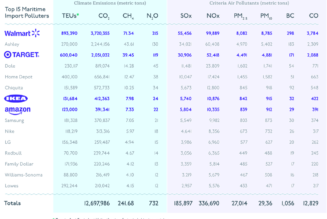
Cogent Communications, an internet backbone provider that routes data across intercontinental connections, has cut ties with Russian customers over its invasion of Ukraine, as first reported by The Washington Post. The US-based company is one of the world’s largest internet backbone providers and serves customers in 50 countries, including a number of high-profile Russian companies.
In a letter to Russian customers obtained by The Post, Cogent cited “economic sanctions” and “the increasingly uncertain security situation” as the motives behind its total shutdown in the country. Cogent similarly told The Verge that it “terminated its contracts” with Russian customers in compliance with the European Union’s move to ban Russian state-backed media outlets.
As Doug Madory, an internet analyst at network tracking company Kentik points out, some of the company’s most prominent Russian customers include the state-backed telecom giant Rostelecom, Russian search engine Yandex, and two of Russia’s largest mobile carriers: MegaFon and VEON.
Unplugging Russia from Cogent’s global network will likely result in slower connectivity, but won’t completely disconnect Russians from the internet, Madory notes. Traffic from Cogent’s former customers will instead fall back on other backbone providers in the country, potentially resulting in network congestion. There isn’t any indication as to whether other internet backbone providers will also suspend services in Russia.
WTF Cogent? Cutting Russians off from internet access cuts them from off from sources of independent news and the ability to organize anti-war protests. Don’t do Putin’s dirty work for him. https://t.co/uqbgOFYWX9
— Eva (@evacide) March 4, 2022
Digital rights activists have criticized Cogent’s decision to disconnect itself from Russia, arguing that it could prevent Russian civilians from accessing credible information about the invasion. “Cutting Russians off from internet access cuts them off from sources of independent news and the ability to organize anti-war protests,” Eva Galperin, the director of cybersecurity at the digital rights group Electronic Frontier Foundation, said on Twitter.
However, Cogent CEO Dave Schaeffer told The Post that Cogent’s move isn’t intended to “hurt anyone,” and the company doesn’t want to keep Russian civilians from accessing the internet. Cogent’s goal is to prevent the Russian government from using the company’s networks for cyberattacks and propaganda, The Post reports.
The Russian government has already made it more difficult for Russians to gain access to news sources and social platforms. On Friday, it passed a new law banning “fake news,” and blocked access to Facebook completely. The country has also restricted access to Twitter and threatened to block Wikipedia over “false messages” about the war in Ukraine.









